Trypentin-At Tab 10'S
MRP ₹187.5
(Inclusive of all Taxes)
₹28.1 Cashback (15%)
Provide Delivery Location
Online payment accepted
 Prescription drug
Prescription drugWhats That
Composition :
Manufacturer/Marketer :
Consume Type :
Expires on or after :
Return Policy :
About Trypentin-At Tab
Trypentin-At Tab is a combination medicine indicated for the management of neuropathic pain. Neuropathic pain is a chronic progressive nerve disease which causes nerve pain due to damaged sensory nerves. Symptoms include spontaneous, untriggered pain, unpleasant feeling, shooting, burning or stabbing pain, difficulty resting or sleeping, and evoked pain (pain caused by events usually not painful).
Trypentin-At Tab is a combination of two drugs: Gabapentin (anti-convulsant) and Amitriptyline (tricyclic antidepressant). Gabapentin works by binding to the specific site on voltage-gated calcium channels; this helps relieve nerve pain. Amitriptyline works by increasing the serotonin and noradrenaline (natural substances) levels in the brain, thereby preventing the movement of pain signals in the brain. Together, Trypentin-At Tab helps in providing relief from neuropathic pain.
You are advised to take Trypentin-At Tab for as long as your doctor has prescribed it for you, depending on your medical condition. In some cases, you may experience certain common side-effects such as dizziness, sleepiness, tiredness, headache, nausea, vomiting, blurred vision, and dry mouth. Most of these side-effects do not require medical attention and will resolve gradually over time. However, you are advised to talk to your doctor if you experience these side-effects persistently.
Consult your doctor if you are pregnant or breastfeeding. Trypentin-At Tab may cause drowsiness and dizziness, so drive only if you are alert. Please consult your doctor if you have any concerns regarding the usage of Trypentin-At Tab in children. Avoid consuming alcohol along with Trypentin-At Tab as it could lead to increased dizziness and sleepiness. Keep your doctor informed about your health condition and medicines to rule out any side-effects.
Uses of Trypentin-At Tab
Directions for Use
Key Benefits
Trypentin-At Tab is a combination of two drugs: Gabapentin and Amitriptyline. Gabapentin belongs to a class of drugs called anti-convulsants whereas Amitriptyline belongs to tricyclic antidepressants. Trypentin-At Tab is used to treat neuropathic pain. Gabapentin works by binding to the specific site on voltage-gated calcium channels; this helps relieve nerve pain. Amitriptyline works by increasing the level of chemical messengers such as noradrenaline and serotonin, thereby preventing the movement of pain signals in the brain. Together, Trypentin-At Tab helps in providing relief from neuropathic pain.
Storage
- Uncoordinated muscle movements need immediate medical attention.
- Observe your movements and try to understand and control the particular movement.
- Regularly do strengthening exercises to improve blood flow throughout the body and avoid involuntary movements.
- Implement massage techniques to enhance blood flow to organs.
- Take a balanced diet and quit smoking.
- Practice yoga and meditation to improve thought processes and reduce uncontrolled and involuntary movements.
- Inform your doctor about your constipation symptoms. They may adjust your medication or advise alternative treatments.
- Stay hydrated by drinking sufficient of water (at least 8-10 glasses a day) to help soften stool and promote bowel movements.
- Increase fibre intake by eating foods high in fibre, such as fruits, whole grains, vegetables and legumes, to help bulk up the stool.
- Establish a bowel routine by trying to go to the bathroom at the same time each day to train your bowels.
- Engaging in regular exercise, like walking or yoga, can support in bowel movement stimulation.
- Consult your doctor if constipation persists, and discuss alternative treatments or adjustments to your medication.
- Try to practice deep breathing exercises or repeat calming words or phrases.
- Seek for medical help if aggression occurs frequently, as it can worsen gradually if not attended.
- You can also try listening to music or relaxing or writing a journal to express the feeling that aggravates to find a solution.
- Consume controlled amounts of salt to raise sodium levels.
- Eat fresh fruits like apples, berries, oranges, mangoes, and bananas.
- Include fresh vegetables like broccoli, sweet potatoes, beets, okra, spinach, peppers, carrots, and edamame.
- Choose frozen vegetables without added butter or sauce.
- Drink electrolyte beverages like sports drinks or electrolyte solutions to replenish sodium and other electrolytes.
- Avoid excessive salt intake, but allow for controlled increases as needed.
- Monitor and manage underlying health conditions that may contribute to hyponatremia.
- Quit smoking as smoking impairs erectile function by significantly damaging blood vessels.
- Maintain a healthy weight as overweight can cause erectile dysfunction.
- Exercise regularly as physical activity enhances blood flow and overall health, benefiting erectile function.
- Consume a healthy diet loaded with whole grains, fruits and vegetables.
- Limit alcohol consumption as excessive alcohol intake can impair erectile function.
- Manage stress by practicing techniques such as yoga, relaxation exercises or meditation.
- In case erectile dysfunction is due to psychological factors, consider couple counselling or sex therapy to address relationship and anxiety issues.
- Openly discuss your concerns with your partner.
- Inform your doctor about dizziness symptoms. They may adjust your medication regimen or prescribe additional medications to manage symptoms.
- Follow your doctor's instructions for taking medication, and take it at the same time every day to minimize dizziness.
- When standing up, do so slowly and carefully to avoid sudden dizziness.
- Avoid making sudden movements, such as turning or bending quickly, which can exacerbate dizziness.
- Drink plenty of water throughout the day to stay hydrated and help alleviate dizziness symptoms.
- If you're feeling dizzy, sit or lie down and rest until the dizziness passes.
- Track when dizziness occurs and any factors that may trigger it, and share this information with your doctor to help manage symptoms.
Drug Warnings
Do not take Trypentin-At Tab if you are allergic to any of its contents; if you recently had a heart attack, if you have heart rhythm problems, severe liver disease or if you are taking monoamine oxidase inhibitors (MAOI) or have taken them in the last 14days. Inform your doctor if you have/had heart, kidney or liver problems, nervous system disorders, respiratory disorders, or muscle weakness. Consult your doctor if you are pregnant or breastfeeding. Trypentin-At Tab may cause drowsiness, dizziness and blurred vision, so drive only if you are alert. Avoid consuming alcohol along with Trypentin-At Tab as it could lead to increased dizziness and sleepiness. Consult your doctor immediately if you experience suicidal tendencies. Keep your doctor informed about your health condition and medicines to rule out any side-effects.
Drug-Drug Interactions
Drug-Drug Interactions
Login/Sign Up
Combining Trypentin-At Tab and Bepridil may increase the risk of irregular heartbeat.
How to manage the interaction:
Although combining Trypentin-At Tab with Bepridil may result in an interaction, it can be used if a doctor recommends it. If you have sudden dizziness, lightheadedness, fainting, or fast or rapid heartbeats during therapy, get emergency medical help. Do not discontinue any medication without consulting a doctor.
The combination of Trypentin-At Tab and Potassium chloride may cause stomach and upper intestinal discomfort. (Only applicable to an oral preparation)
How to manage the interaction:
Although co-administration of Trypentin-At Tab and Potassium chloride is not recommended as it can possibly lead to an interaction, they can be taken if prescribed by a doctor. If you experience severe stomach pain, bloating, sudden dizziness or lightheadedness, nausea, vomiting (in particular with blood), decreased hunger, and black stools while taking these medications, consult a doctor immediately. Do not discontinue any medications without talking to a doctor.
Combining Trypentin-At Tab and Grepafloxacin may increase the risk of irregular heartbeat.
How to manage the interaction:
Although combining Trypentin-At Tab with Grepafloxacin may result in an interaction, it can be used if a doctor recommends it. If you have sudden dizziness, lightheadedness, fainting, or fast or rapid heartbeats during therapy, get emergency medical help. Do not discontinue any medication without consulting a doctor. Note: Grepafloxacin is no longer available in the market. Grepafloxacin should not be combined with any other medications.
Combining Trypentin-At Tab and Dronedarone may increase the risk of irregular heartbeat.
How to manage the interaction:
Although combining Trypentin-At Tab with Dronedarone may result in an interaction, it can be used if a doctor recommends it. If you have any heart problems or electrolyte imbalances, you may be susceptible. If you have sudden dizziness, lightheadedness, fainting, or fast or rapid heartbeats during therapy, get emergency medical help. Do not discontinue any medication without consulting a doctor.
Taking Trypentin-At Tab and Ziprasidone may increase the risk of irregular heartbeat.
How to manage the interaction:
Although there is a interaction between Trypentin-At Tab with Ziprasidone, but it can be taken together if prescribed by your doctor. However, consult your doctor immediately if you experience sudden dizziness, lightheadedness, fainting, or fast or rapid heartbeats . Do not discontinue any medication without consulting a doctor.
Trypentin-At Tab and Thioridazine can enhance each other's effects when used together.
How to manage the interaction:
Although using Trypentin-At Tab and Thioridazine together can cause an interaction, they can be used if prescribed by a doctor. If you have extreme sleepiness, confusion, anxiety, vomiting, vision problems, feeling hot or cold, sweating, muscle stiffness, fainting, fits, or coma, seek medical help. Do not discontinue any medications without consulting a doctor.
Combining Trypentin-At Tab and Sparfloxacin may increase the risk of irregular heartbeat.
How to manage the interaction:
Although combining Trypentin-At Tab with Sparfloxacin may result in an interaction, it can be used if a doctor recommends it. If you have any heart problems or electrolyte imbalances, you may be susceptible. If you have sudden dizziness, lightheadedness, fainting, or fast or rapid heartbeats during therapy, get emergency medical help. Do not discontinue any medication without consulting a doctor. Note: Sparfloxacin is no longer available in the market. Grepafloxacin should not be combined with any other medications.
Combining Furazolidone with Trypentin-At Tab can increase the risk of serotonin syndrome(increased serotonin hormone).
How to manage the interaction:
Although using Furazolidone and Trypentin-At Tab together may cause an interaction, they can be taken if prescribed by a doctor. Consult a doctor if you have symptoms such as confusion, hallucination, fits, blood pressure alteration, increased heart rate, fever, excessive sweating, shivering or shaking, blurred vision, pain in the muscles or stiffness, incoordination, stomach cramps, nausea, vomiting, and diarrhea. Inform a doctor if you have recently taken Trypentin-At Tab. Do not discontinue any medications without consulting a doctor.
Taking Linezolid with Trypentin-At Tab can increase the risk of serotonin syndrome (increased serotonin hormone).
How to manage the interaction:
Although using Linezolid and Trypentin-At Tab together may cause an interaction, they can be taken if prescribed by a doctor. Consult a doctor if you have symptoms such as confusion, hallucination, fits, blood pressure alteration, increased heart rate, fever, excessive sweating, shivering or shaking, blurred vision, pain in the muscles or stiffness, incoordination, stomach cramps, nausea, vomiting, and diarrhea. Inform a doctor if you have recently taken Trypentin-At Tab. Do not discontinue any medications without consulting a doctor.
Combining Trypentin-At Tab and Pimozide may increase the risk of irregular heartbeat.
How to manage the interaction:
Although combining Trypentin-At Tab with Pimozide may result in an interaction, it can be used if a doctor recommends it. If you have any heart problems or electrolyte imbalances, you may be susceptible. If you have sudden dizziness, lightheadedness, fainting, or fast or rapid heartbeats during therapy, get emergency medical help. Do not discontinue any medication without consulting a doctor.
Drug-Food Interactions
Drug-Food Interactions
Login/Sign Up
Diet & Lifestyle Advise
- Include food rich in vitamin B and D in your diet.
- Include cayenne pepper in your diet as it can help in lowering neuropathic pain.
- Exercising regularly helps in improving overall health and combating pain.
- Rest well, get plenty of sleep.
- Try taking a warm bath, as it can be soothing.
- Avoid smoking and alcohol consumption.
- Meditation and yoga can help lower stress, decrease pain sensitivity and improves coping skills.
- Acupuncture can be helpful by stimulating pressure points.
- Using essential oils for massages can help increase circulation.
Side Effects of Trypentin-At Tab
- Dizziness
- Sleepiness
- Tiredness
- Headache
- Nausea
- Vomiting
- Dry mouth
Habit Forming
Therapeutic Class
All Substitutes & Brand Comparisons
RX
Adgaba-AT 100 Tablet 10's
Bion Therapeutics (I) Pvt Ltd
₹121.5
(₹10.94 per unit)
35% CHEAPERRX
Gabatryp Tablet 10's
Propel Healthcare
₹168.5
(₹15.17 per unit)
10% CHEAPERRX
Out of StockGabalex-AT Tablet 10's
Zaiva Lifesciences Pvt Ltd
₹179
(₹16.11 per unit)
4% CHEAPER
Author Details
We provide you with authentic, trustworthy and relevant information
Drug-Diseases Interactions
Drug-Diseases Interactions
Login/Sign Up
FAQs
Drug-Drug Interactions Checker List
- ZOLPIDEM
- DULOXETINE
- ESCITALOPRAM
- SERTRALINE
- HYDROCODONE
- ACETAMINOPHEN
- DIPHENHYDRAMINE
- CETIRIZINE
- CYCLOBENZAPRINE
- PREGABALIN
- TOPIRAMATE
- LEVOTHYROXINE
- ALPRAZOLAM
- QUETIAPINE
Disease/Condition Glossary
Neuropathic pain: Neuropathic pain is caused due to damaged sensory nerves. The pain could be intermittent or continuous, which is felt as a prickling, stabbing, tingling or burning sensation. A feeling of numbness and loss of sensations is also common with neuropathic pain. Usually, the body sends the pain signals when there is an injury, but with neuropathic pain, the pain is not triggered by an injury; the body unpromptedly sends the pain signals. Symptoms include spontaneous, untriggered pain, unpleasant feeling, shooting, burning or stabbing pain, difficulty resting or sleeping, and evoked pain (pain caused by events usually not painful).

Have a query?
Alcohol
Safe if prescribed
Avoid consumption of alcohol while taking Trypentin-At Tab as it may cause increased dizziness and sleepiness.
Pregnancy
Consult your doctor
Please consult your doctor if you have any concerns regarding this; your doctor will prescribe only if the benefits outweigh the risks.
Breast Feeding
Consult your doctor
Consult your doctor before taking Trypentin-At Tab ; your doctor will decide whether Trypentin-At Tab can be taken by breastfeeding mothers or not.
Driving
Safe if prescribed
Trypentin-At Tab may cause drowsiness, sleepiness, tiredness and blurred vision. Do not drive or operate machinery unless you are alert.
Liver
Consult your doctor
Dose adjustment may be needed. Please consult your doctor if you have a liver impairment or any concerns regarding this.
Kidney
Consult your doctor
Dose adjustment may be needed. Please consult your doctor if you have kidney impairment or any concerns regarding this.
Children
Safe if prescribed
Limited information is available. Please consult your doctor.




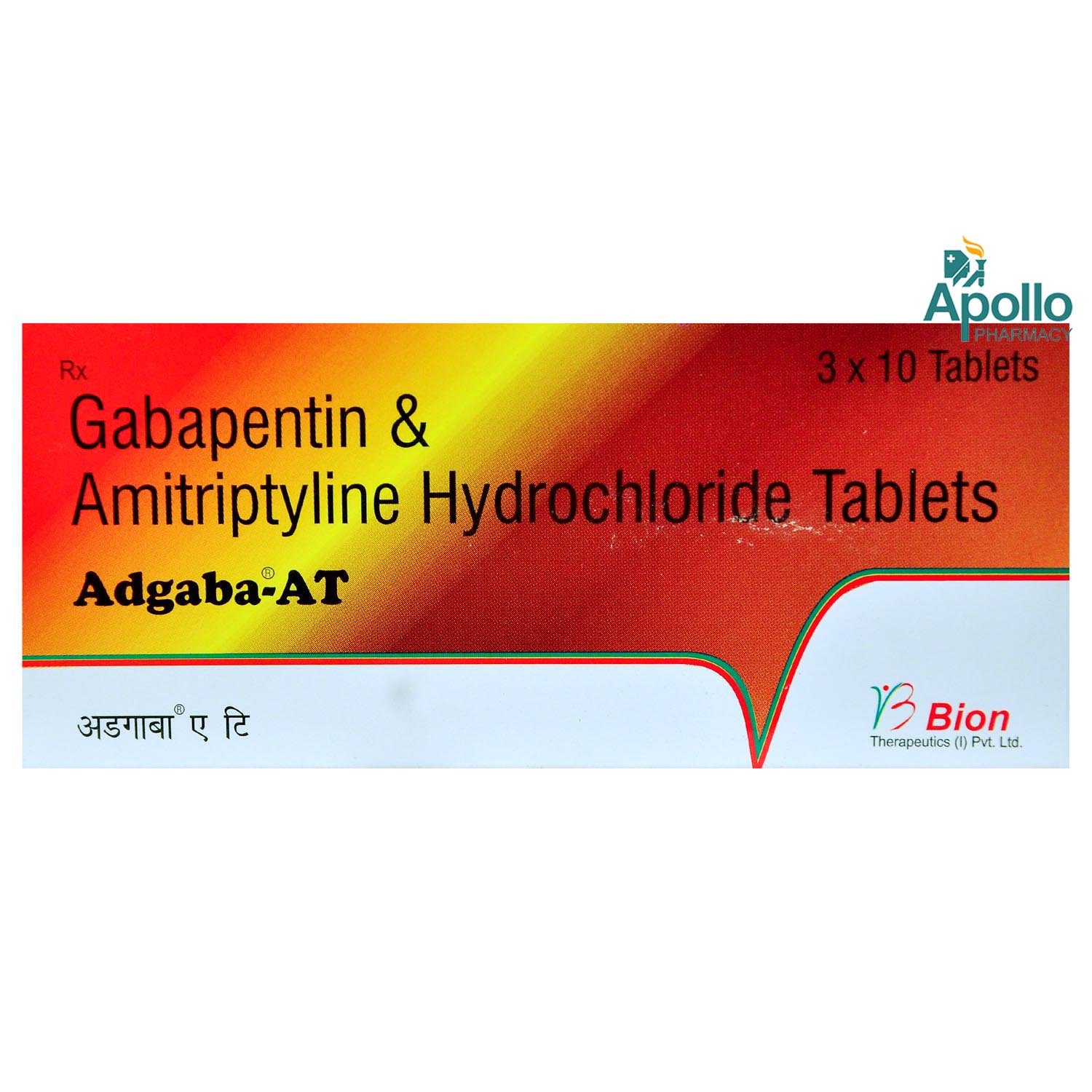

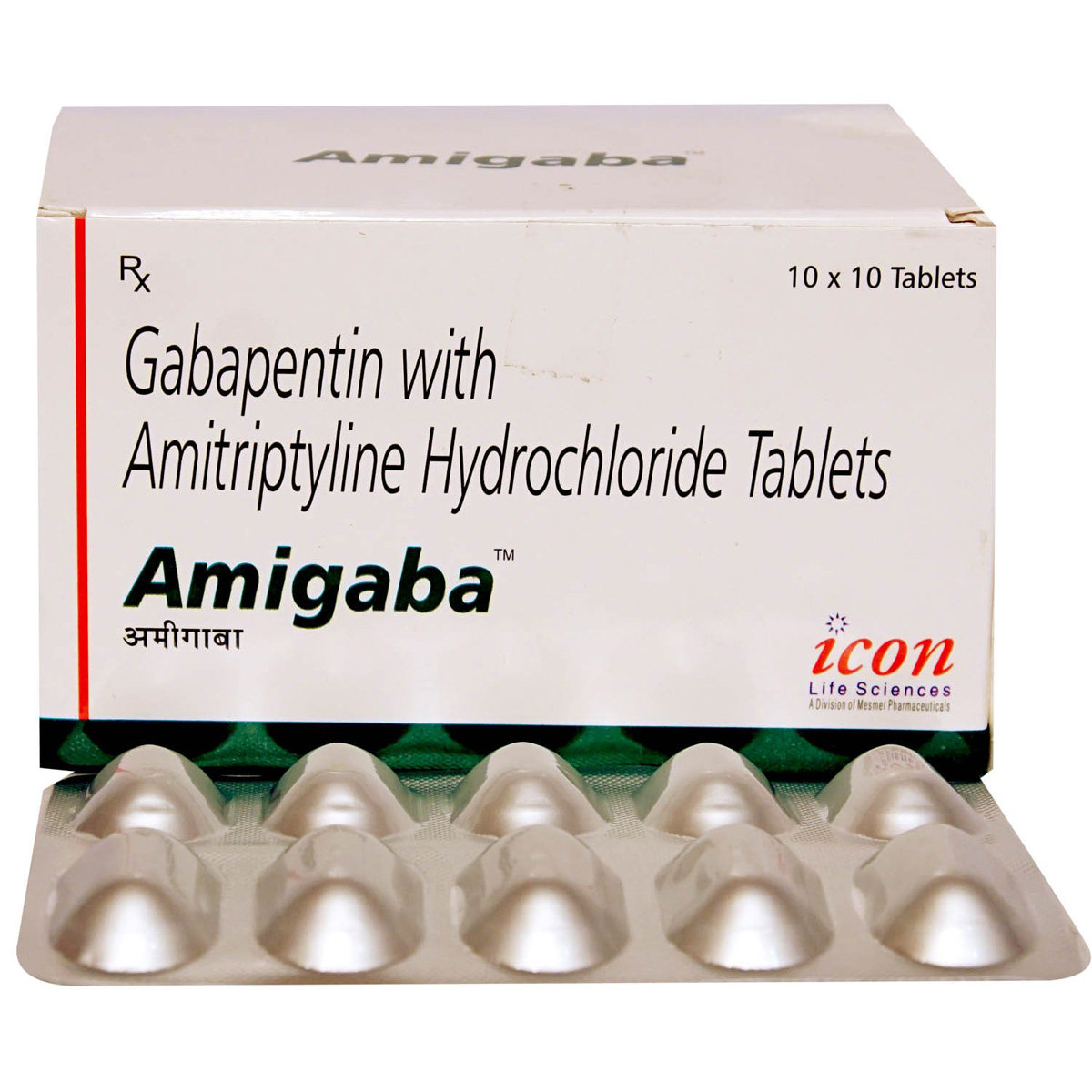

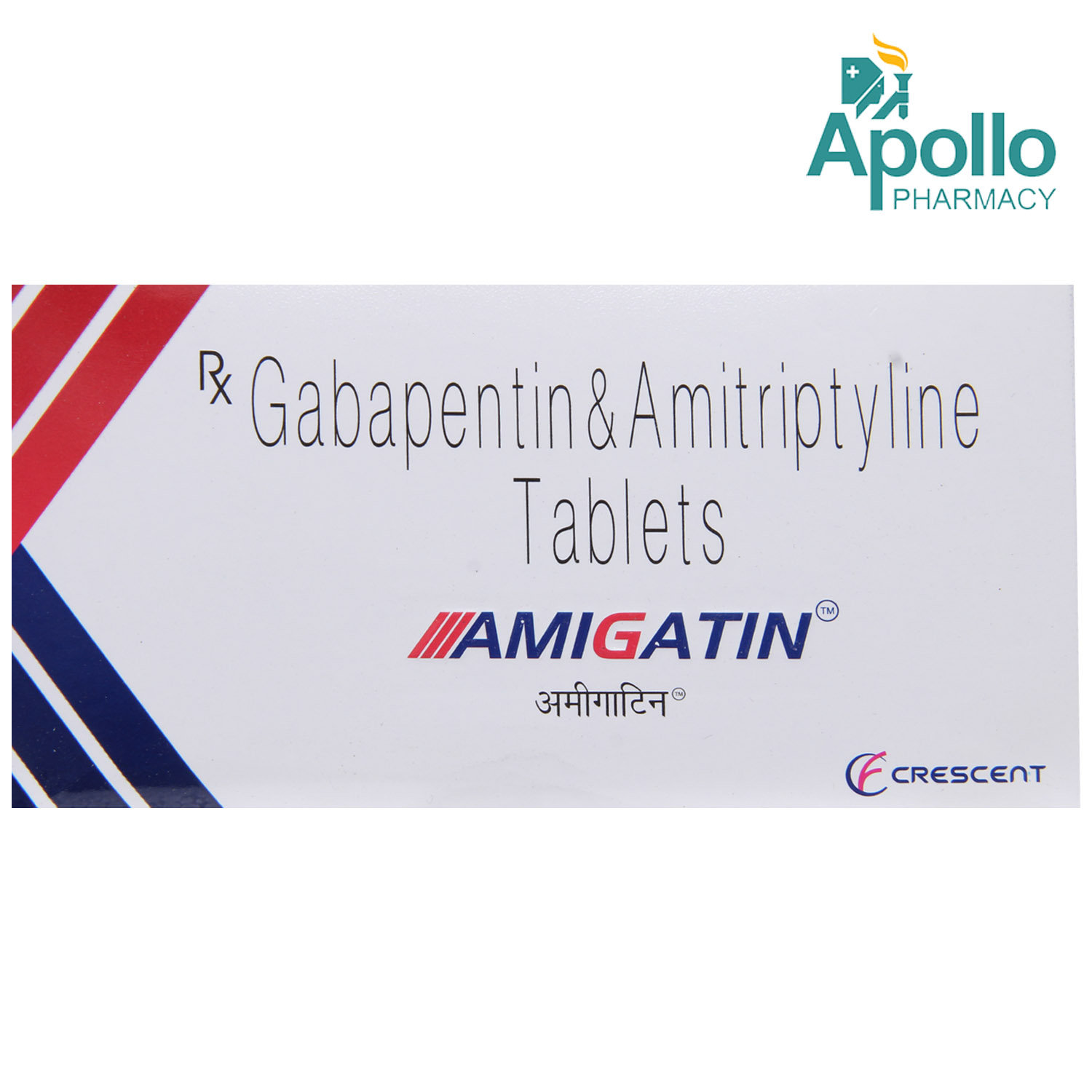
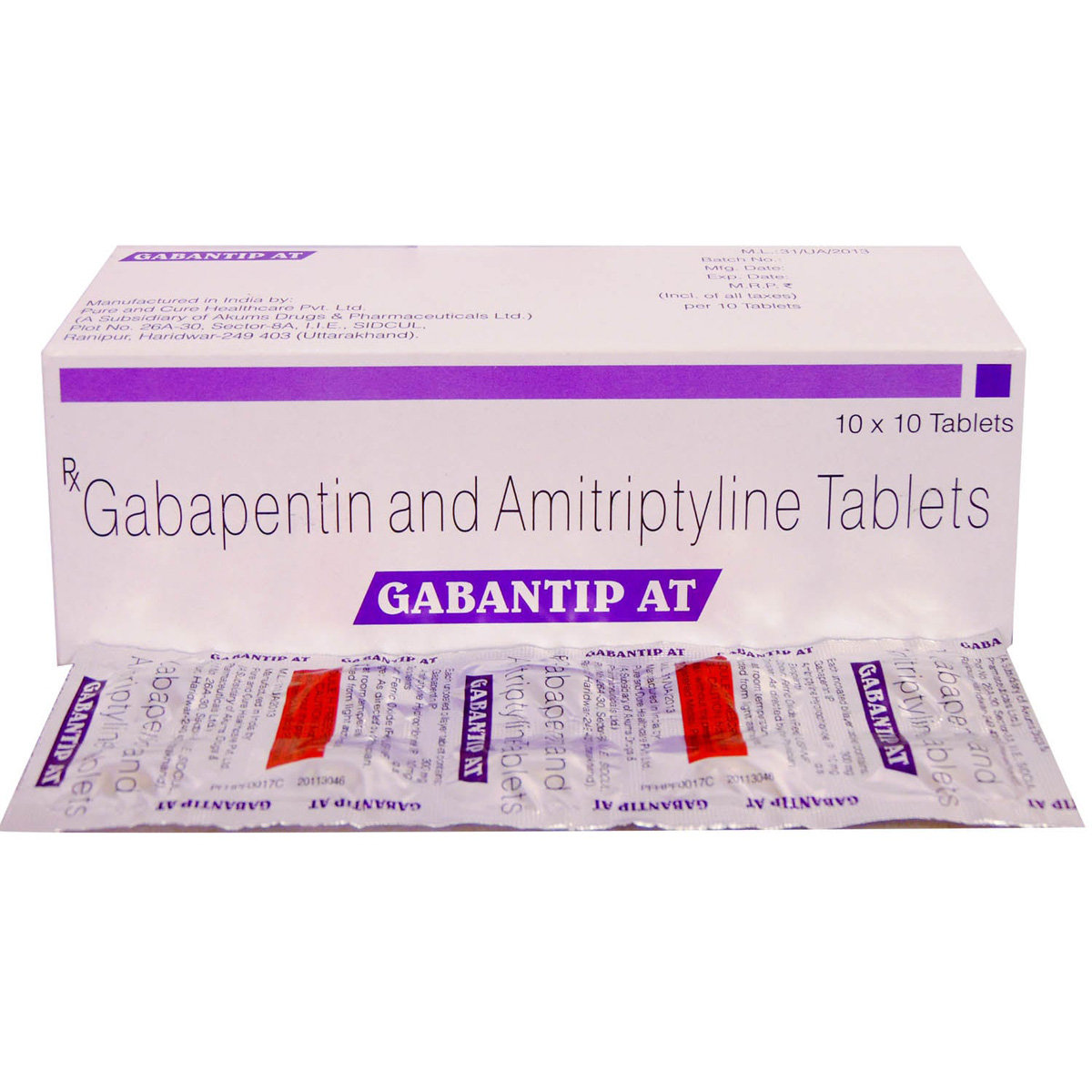
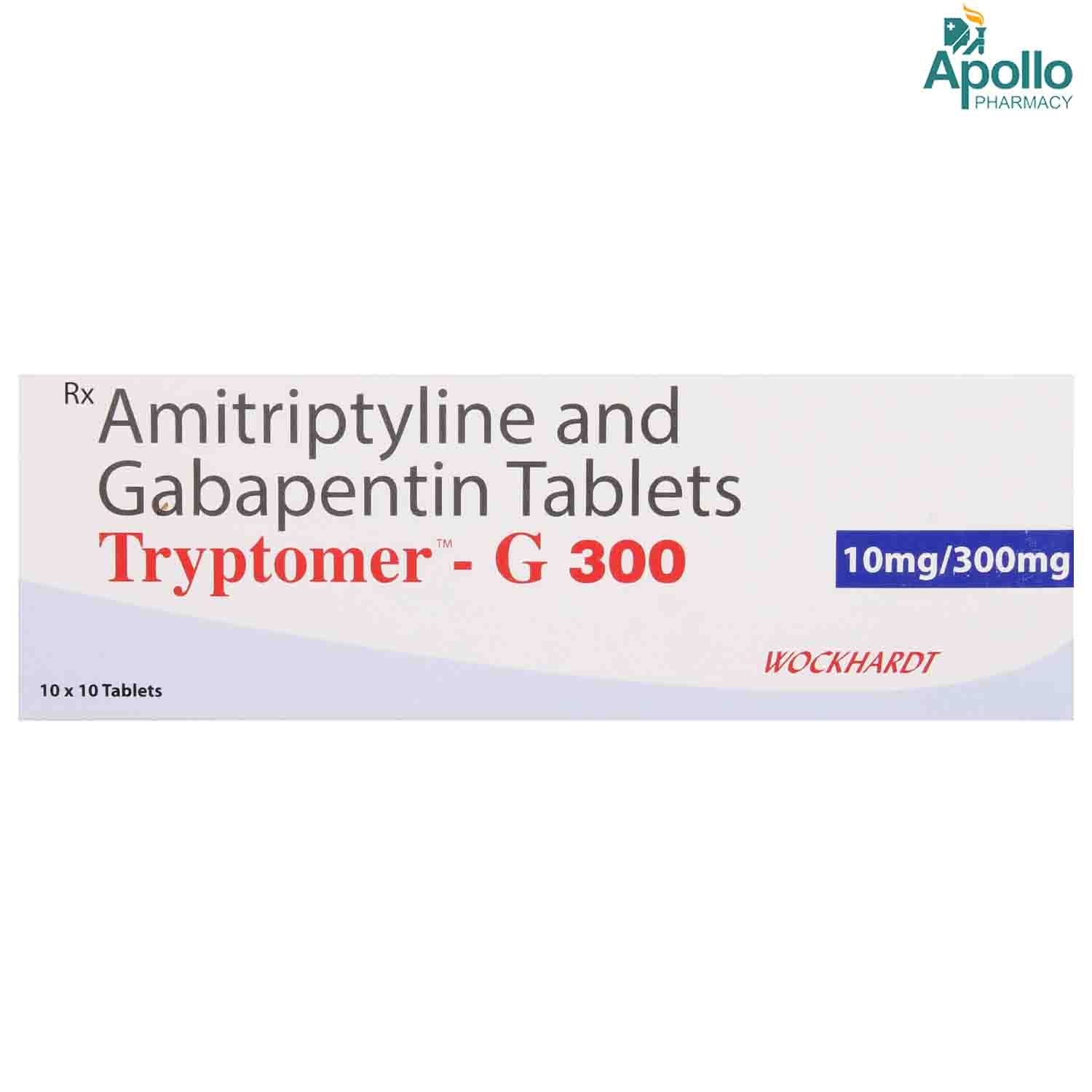

_0.jpg?tr=q-85)

